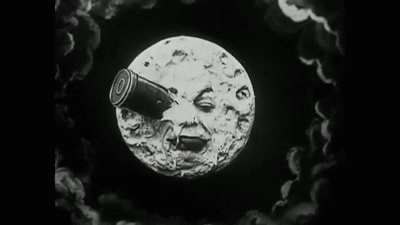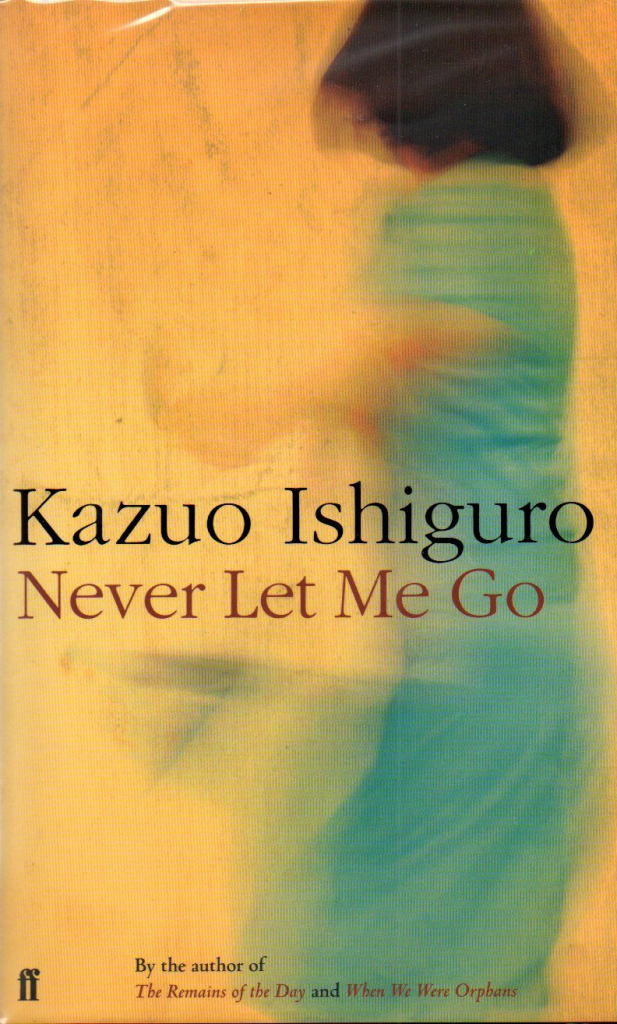BROKEN KNOWLEDGE (5)
By:
October 20, 2025

University of Toronto philosopher Mark Kingwell and HILOBROW‘s Josh Glenn are coauthors of The Idler’s Glossary (2008), The Wage Slave’s Glossary (2011), and The Adventurer’s Glossary (2021). In 2022, they engaged in an epistolary exchange about science fiction. Via the series BROKEN KNOWLEDGE, the title of which references Francis Bacon’s philosophy, HILOBROW is pleased to share a lightly edited version of their exchange with our readers. Also see Josh and Mark’s previous exchange 49th PARALLEL.
BROKEN KNOWLEDGE: FIRST CONTACT | WHAT IF? | A HYBRID GENRE | COUNTERFACTUALS | A HOT DILUTE SOUP | I’M A CYBORG | APOPHENIC-CURIOUS | AN AESTHETICS OF DIRT | PAGING DR. KRISTEVA | POLICING THE GENRE | FAMILIAR STRANGENESS | GAME OVER | THE WORLD VIEWED | DEFAMILIARIZATION | SINGULAR CREATURES | ALIEN ARCHAEOLOGIST | THE PHENOMENOLOGY OF SCREEN-TIME | HOMO SUPERIOR | EVERYTHING IS US.

20th September, 2022
BOSTON
To correct for my tendency to make lists of sf books that I like, when I’m supposed to be engaging with your substantial questions, I’ll respond to your recent note in reverse order.
You mention hybridized mash-ups — spy thrillers plus sf, hard-boiled detective plus sf, etc. What I’ve discovered about sf, now that I’ve read scores of novels and stories from the formative 1900–1935 era, i.e., before John Campbell, et al., started policing the genre’s borders, is that it’s all hybridized mashups, all the way down. Edwin Lester Arnold’s Lieut. Gullivar Jones: His Vacation (1905), which would help inspire Edgar Rice Burroughs’s wildly popular Barsoom series a few years later, is Gulliver’s Travels… on Mars! Maurice Renard’s The Blue Peril (1910) combines elements of Wellsian science fiction with Poe-esque Gothic horror and detective fiction. Sax Rohmer’s Fu Manchu stories are Sherlock Holmes pastiches plus Yellow Peril thrillers… with some super-science in the mix. Etc.
I’ve been reading up on the influential English biologist J.B.S. Haldane, who proposed that radiation, acting upon our planet’s inorganic compounds billions of years ago, produced a primordial “soup” from which emerged life. Science fiction, too, emerged during the 1900–1935 period from out of a hot dilute soup of sorts, this one composed of outré genres of literature — from occult mysteries and paranormal thrillers to Yukon adventures and Symbolist poetry — acted upon by new scientific and technological theories and breakthroughs. It’s really fun to watch authors play across genres, during this period. Right now at HILOBROW, I’m serializing The Untamed, a 1919 pulp western by Max Brand — who also wrote proto-sf during the same period. Which led me to suspect that The Untamed — with its uncanny, super-powered hero — might itself be a kind of sf tale.
I need to do more research, but it’s my impression that the so-called Golden Age of sf (c. 1935–1965) was a period during which certain forms of genre-curious experimentation within sf was permitted to continue while other forms were declared to be beyond the pale. Occult motifs and romance, for example, were largely banished — and wouldn’t return (the repressed always returns) until the New Wave era of c. 1965-on. To some extent, this policing had to do with misogyny. Occult and romance stories were “feminine,” whereas Golden Age sf was going to be “masculine.” As a result – as one fascinating recent study demonstrates — there were more women writing for sf publications before the genre’s Golden Age than during it. So — not a Golden Age for women in sf, then.
You mention Atwood, Roth and counterfactuals on real-world history. (I don’t think James counts because he was writing in 1992 about events that begin in 1994, right? I’ve also been prejudiced against James since I read Brian W. Aldiss’s Greybeard [1964], which is essentially the same story.) Yes, how are these sf? I recently read Ishiguro’s Never Let Me Go, a fine example of an alternative-history sf-ish novel. “I don’t have the energy to think about what cars or shops or cup-holders would look like in a future civilization,” Ishiguro has explained. Also, for some reason stories set in prehistoric times were classified as sf for the longest time. Also, steampunk, which takes place in our past, right? Or in “the future of the past,” as The Guardian put it, attempting to square this particular circle, in a review of Anne and Jeff VanderMeer’s steampunk anthology a decade ago.
Atwood has argued that she’s not interested in writing the kind of sf that has robots and AI in it. But… since she first made that point, now we’re living with robots and AI. We’re not at the I, Robot point yet, by any means — but these phenomena are part of our present world, so it would be strange for any sf writer to just pretend this stuff had never happened.
A note on Darth Vader, since my youthful fascination for the character surprised you. I think I responded to Vader the way I respond to, say, Rodney Dangerfield in Caddyshack. These are figures who seem to crash their way into the story from… elsewhere. Which makes them uncanny — absurdly so, in Dangerfield’s case; eerily so in Vader’s. I’m sorry that future Star Wars installments gave Vader a “relatable” back story. Ruined him for me.
Back to “what is sf” — the question that has launched a thousand introductions to sf story collections. I think we shouldn’t focus so much on science — in the form of amazing breakthroughs and new tech — and perhaps focus instead on the scientific method. Maybe sf should stand for “scientific-method fiction.” The scientific method was thrilling, to proto-sf readers, because it promised to make sense of the fantastic. Which gave proto-sf writers license to introduce ever more fantastical elements into their stories. Science fiction is an epistemological genre — it asks “what if” [something fantastical] and then explores this wild hypothetical in a manner that’s at least intended to appear rational, logical, reasonable. In William Hope Hodgson’s 1907 proto-sf story “The Voice in the Night,” we read about a man who is “sanely facing some intolerable horror.” As William James and C.S. Peirce would remind us, that’s what we’re all required to do, at the level of perception, all the time. From infancy, we’re constantly struggling, at some level, to make sense of the “blooming and buzzing confusion” that is reality itself. Perhaps this is why we love sf so much — what other genre asks us to grapple, at the conscious level, with this stuff?
I’m pitching you a softball here — this is your cue to talk about apophenic thrillers…
Josh
ALSO SEE: Josh’s BEST 250 ADVENTURES of the 20th CENTURY list | Mark on BATTLESTAR GALACTICA and THE HONG KONG CAVALIERS | Mark and Josh’s exchange 49th PARALLEL.
